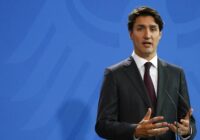House prices and oil prices rose this week, raising prospects of short-term economic growth while amplifying possibilities of long-term damage to the planet.
This week, house prices in the United States hit a record. Believe it or not, the average home price for September is 0.1% above the previous peak set in July 2006. The Wall Street Journal, a publication now owned by the venerable Rupert Murdoch, is of the view that this rise is “bringing to a close the worst period for the housing market since the Great Depression and stoking optimism for a more sustainable expansion.”
This author disagrees.
Time and time again, this author has warned about the perils of quantitative easing (QE). At its simplest, QE is a method through which central banks flush cash into the economy to stimulate demand and boost the economy. In the May 22 edition of The World This Week, this author explained how QE was contributing to merger mania, a rising risk to the global economy. In the January 24 edition, this author pointed out how the global economy was in trouble, partly because QE was papering over the deeper structural problems of debt, unemployment and inequality. Then, his author quoted Bill Gross, the “Bond King” or the “real Mr. Bond,” who damned central banks for QE.
The current rise in house prices is due mainly to QE and not to the dynamism of the US economy. It is true that companies in parts of the US such as the San Francisco Bay Area have their 10 fingers in ghee and their mouth in the butter jar. Facebook, Apple and Google, or rather Alphabet, are doing swimmingly well. So, rising house prices make sense. Even here, though, soaring wages cannot keep up with house prices. In avoiding the Charybdis of recession, the US Federal Reserve (Fed) has sailed into the Scylla of a bubble.
Record house prices portend rising risks to the global economy, but it is developments in the good old world of dirty oil that take center stage this week. Canadian Prime Minister Justin Trudeau, known for his debonair looks and love for the environment, approved the expansion of the Kinder Morgan Trans Mountain pipeline that carries oil for export from Alberta’s tar sands to the west coast. Environmentalists, indigenous groups and even political allies are not too pleased.
A week ago, some on the right insinuated that Trudeau was Fidel Castro’s love child after the young Canadian leader was complimentary about the late Cuban. This week, many on the left are furious with Trudeau. Truth be told, poor Trudeau is in a bind. He probably genuinely believes in protecting the environment and combating climate change. Yet what is good for the environment only too often runs counter to what is good for the economy.
After expansion, the pipeline’s capacity will increase from 300,000 to 890,000 barrels a day. This will generate more jobs in Alberta, higher profits for oil companies and increased taxes for the government. It is these taxes that will help Trudeau deliver more services to the Canadian people who have voted for him after years of welfare cuts under Stephen Harper’s premiership.
Over the last two years, energy companies in the US and Canada that were tapping tar sands or fracking shale gas have found themselves in trouble due to low oil prices. Pipelines assume massive importance in such economic conditions for companies and governments. At the same time, they also increase risks of environmental damage. Spills become a real and tangible possibility. Furthermore, many indigenous groups see the building and extensions of pipelines as continuing aggression against their historic homelands. In the US, the Sioux recently organized a spirited resistance in North Dakota over another pipeline. Once, Native Americans owned all of North America. Today, they find their moth-eaten reservations under threat because others want more oil.
It is an open secret that extracting oil from tar sands and fracking for gas is a dirty business. Huge amounts of water are wasted. Toxic metals end up in the soil and greenhouse emissions are higher than the amounts released in conventional production. Greenpeace has done a decent job of clearly explaining some environmental impacts of fracking. Yet this has failed to convince Trudeau, who is certainly a far more environmentally friendly character than either George W. Bush or Donald Trump.
Those who are disappointed by Trudeau must remember that this callow leader is a politician and not a prophet. He is not someone who can move far ahead of his electorate. His voters like those who live south of the border are used to a certain quality of life. People live in big homes in North America. The vast majority of these need heating in winter and cooling in summer. Because people live in such homes, they are spread out and have to drive around for longer. Bigger homes also mean that people can own more stuff. Therefore, they consume more and products are shipped to them from around the world. All these activities require energy and, unsurprisingly, oil is the lifeblood of the North American economy.
Some argue that the use of oil and other fossil fuels is a testament to human ingenuity. After all, human beings are an innovative and inventive species who have overcome the constraints of the environment spectacularly. The invention of agriculture and the wheel was a big step forward, but the invention of the steam engine and then the motor car completely changed the ballgame for this species. Despite wars and pestilence, the human population has exploded. About 7.5 billion people now live on this planet. The vast majority aspire to live like North Americans. They want to drive cars, buy washing machines and drink coffee at Starbucks.
 This model of human existence is sanctified by economics, the greatest religion of our time. Its high priests posit that increasing consumption of goods and services is a jolly good thing. Every country aims for growth because its leaders and often its people want more. By this logic, human beings are better off if they buy ever more stuff. So, gold, silver and diamonds should make “Uptown Girl” happy. Similarly, Ferraris, lake houses and intricate ivory figurines should please the golden boys at Goldman Sachs. Even The Wall Street Journal is beginning to acknowledge that this might not entirely be true and wealth might not necessarily lead to happiness.
This model of human existence is sanctified by economics, the greatest religion of our time. Its high priests posit that increasing consumption of goods and services is a jolly good thing. Every country aims for growth because its leaders and often its people want more. By this logic, human beings are better off if they buy ever more stuff. So, gold, silver and diamonds should make “Uptown Girl” happy. Similarly, Ferraris, lake houses and intricate ivory figurines should please the golden boys at Goldman Sachs. Even The Wall Street Journal is beginning to acknowledge that this might not entirely be true and wealth might not necessarily lead to happiness.
Assuming for a moment that Uptown Girl and Goldman Boy are fulfilled by consumption, other questions still arise. If the gold and silver for the former came from robbing the Incas, would that be fine? What if that gold and silver came from toxic mining that poisoned workers and vast stretches of land? What if these toxins entered the food chain, harming plants, animals and people? What if this land was the ancestral home of tribes who had lived in largely egalitarian communities but were now reduced to semi-serfdom because of penury? Similarly, what if ivory for the Goldman Boy’s figurines came from the slaughter of majestic elephants? What if those carving the figurines were slave labor in dingy basements in Shanghai? What if their backs were broken and lungs poisoned in the process? Suffice to say, there are exactly the questions that economics shoves under a magic carpet it calls externalities.
Essentially, the modern global economy is based on the idea of homo economicus, which deems that man is an economic animal with wealth as the end goal of life. Fossil fuels like oil and coal add to human wealth. They allow Americans to drive cars and Canadians to live in homes with heating. There is certainly an element of truth to this idea. Most Kenyans would jump at the opportunity to move to icy Canada, but most Canadians would be loath to live in salubrious Kenya.
Yet wealth and prosperity are not all. To steal a line from William Shakespeare, there are more things in heaven and earth than diamonds and Ferraris. As this author has pointed out repeatedly, the claims economics makes to be a science are absolute nonsense. Economics is infuriatingly simplistic and reductive, while human beings are infernally complicated creatures living in a terribly complex world.
This complex world is now under threat. In the October 30 edition of The World This Week, this author argued that climate change matters and so do other species. That week, the overall decline of 58% in vertebrate population sizes from 1970 to 2012 had gone largely unnoticed in countries like India and the US. This author said the consumerist Americano economic model will lead the world to disaster. A new citizenship with a stronger sense of community that focuses on long-term challenges is the need of the hour.
That citizenship is not yet in sight. Not only did Trudeau expand a major pipeline, but also the Organization of Petroleum Exporting Countries (OPEC) agreed to the first cut in oil production in eight years. Even Russia agreed to unprecedented cuts in its own output. This sent oil prices soaring and the deal will drain record global oil inventories. Jeffrey Currie of Goldman Sachs found the economics of the deal “incredibly appealing” and is salivating at the prospects of higher economic growth.
Over the last two years, oil producers such as Russia, Brazil, Nigeria and countries in the Middle East and North Africa have been in deep trouble. Falling oil revenues have led to increasing budget deficits and rising debt. These oil producers had to lower government spending, pushing their economies into recession. This in turn lowered demand for goods and services that these oil producers would have purchased from economies such as Germany and the US. As a result, deflation is a big challenge for many economies. In brief, low oil prices have caused major headwinds for the global economy.
Economists like Currie estimate that rising oil prices will stimulate the oil producing economies, boosting global growth. The Russian ruble, the Mexican peso and the Canadian dollar have appreciated after the OPEC deal. The deal will also help the US, which is now the third largest oil producer in the world, pumping out more than 9 million barrels per day, nearly 10% of the average daily consumption of 96 million barrels. Rising oil prices will lead to greater investment and output in the US. They will lower unemployment, increase wages and expand the economy.
Given such good news for the global economy, everyone should be singing “Kumbaya My Lord,” but some killjoys like this author are not exactly jumping up and down in joy. The OPEC deal is like a cocaine dose that will give the global economy a temporary high but do nothing to solve its deeper structural problems such as rising debts, increasing inequality and worsening environment.
It is indubitably true that dirty oil makes the global economy go round. Like any addict, this economy cannot suddenly abjure oil without suffering withdrawal symptoms. However, the world is coming to a point where increasing oil production and consumption are not sustainable. Already, there is talk of India’s demand for oil growing faster than China’s, but economists conveniently forget that New Delhi is now the most polluted city on earth. In simple cost-benefit terms that even Professor Gradgrind might understand, the dramatic rise in breathlessness, asthma and allergy in India’s capital could possibly outweigh the advantages of using more oil.
If humanity is serious about its long-term future, it has to start weaning itself off oil. Both demand and supply will play a part. A greater frugality in using energy would go a long way. Even a simple act of not keeping American buildings at near freezing temperatures during summers would help. Similarly, a greater use of using alternative energies would add immense value. Solar plants à la Rwanda hold promise. However, such developments will have to wait because Trudeau, OPEC and Goldman Sachs are still hooked on oil and so is the rest of the world.
*[You can receive “The World This Week” directly in your inbox by subscribing to our mailing list. Simply visit Fair Observer and enter your email address in the space provided. Meanwhile, please find below five of our finest articles for the week.]
Islam and the Far Right: Is Bigotry Back?
Is the media responsible for the far-right backlash following acts of terrorism?
In 2016 the different types of far-right extremism and its new, lowest-common denominator, anti-Muslim hate incidents, have taken leaps and bounds toward the mainstream. Many of those advancing what can be usefully called Islamoprejudice—rather than fear suggested by the term Islamophobia—clearly revel in offensive imagery and rhetoric or, at the very least, don’t care enough to see that racially or religiously stereotyping others offends fundamental liberal principles of tolerance.
This is an ugly business, but in dark times engaged citizens do not have the luxury of merely shielding eyes from ugliness. Instead, there is a greater need than ever to confront bigotry anywhere and everywhere it is found. Exclusionary rhetoric is back in fashion, not only from the far right and what can be usefully called the “near right” in the tabloid press and at the fringes of mainstream politics. For example, only five… Read more
Fixing Fashion to Save the Planet
Fashion is the second largest industrial polluter on the planet.
The University of Cambridge’s Centre for Study of Existential Risk (CSER) investigates threats to humanity posed by technology and human activity. At the top of their list, climate change firmly rests as the greatest self-created risk to our civilization. Fossil-fueled industry and overconsumption have danced together to create exponential global environmental changes. The top industrial contributor to climate change is intuitive to many—oil. The second is often a surprise: fashion.
Fashion is the second largest industrial polluter on the planet and among the top exploiters of people globally. It’s the second greatest contaminator of the Earth’s freshwater supply. A t-shirt made from conventional cotton requires 2,700 liters of water, or one person’s drinking water for 900 days. The apparel industry accounts for 10% of global carbon emissions. A quarter of the chemicals produced in the world are used in textiles. Microfibers that shed from synthetic clothing account… Read more
Politics, Media and Ethics: A Troublesome Trio
With the decay of codes of media ethics we need to be smarter than ever when choosing information we are willing to trust.
Donald Trump’s no-holds-barred electoral campaign, punctuated by pyrotechnic rally performances, used the media to generate waves of shock, ridicule and admiration through the United States and the world—and won him America’s presidency. These tactics—and the resulting counterattacks—jammed new information silos into the internet and helped divide the nation’s political constituencies. They also threatened the media’s codes of ethics, which specify moral values and standards of behavior that should be observed in the practice of professional journalism.
Soon after results were received for the 2016 US general election, Will Rahn of CBS News Digital composed an excellent internet essay that could be classified as a sort of mea culpa about the Trump election victory and the quality of the campaign coverage by newspapers, television and radio… Read more
Does Photography Dehumanize Refugees?
Images create a particular political language that shapes our way of understanding refugees.
The image of the stunning gaze and green eyes enthralled the world when it was captured by award-winning photographer, Steve McCurry, and appeared on the front page of National Geographic in 1984. The subject’s name was Sharbat Gula, who later became an iconic symbol of the refugee crisis. In recent weeks, Gula’s face has, once again, come to the forefront of media attention when Pakistani authorities filed charges against her for falsifying identification documents.
But why have the media and numerous people always responded to the image of Gula in such a powerful way? What is it, in particular, about this image? Gula’s face is clearly more than just a pair of green eyes. Her face has character and it creates, in the act of an interpersonal relationship, a union between the subject of the picture and the viewer. In the context of this unique… Read more
Fidel Castro: The Last Great Revolutionary
With the death of Fidel Castro, the last great leader in the revolutionary movements of the 20th century has gone.
It is with sadness that I learned about the death of the founder of modern Cuba, Comandante Fidel Castro. For the younger generations his may not be a familiar name, but for us who were looking for alternatives to international capitalism Castro and the Cuban Revolution was an inspiration. The revolutionaries were radical nationalists who rose against the tyranny of Fulgencio Batista—a brutal dictatorship led by a corrupt family that exploited the people ruthlessly and used terror and torture extensively against the opposition, while enjoying the support of the United States.
The US began to treat the Cuban revolutionaries as dangerous communists after they had overthrown Batista regime. It is then that Castro and his comrades turned to communism, and it was the Soviet Union that came to their help. Fidel Castro, Ernesto “Che” Guevara and other… Read more
The views expressed in this article are the author’s own and do not necessarily reflect Fair Observer’s editorial policy.
Photo Credit: Songqiuju
Support Fair Observer
We rely on your support for our independence, diversity and quality.
For more than 10 years, Fair Observer has been free, fair and independent. No billionaire owns us, no advertisers control us. We are a reader-supported nonprofit. Unlike many other publications, we keep our content free for readers regardless of where they live or whether they can afford to pay. We have no paywalls and no ads.
In the post-truth era of fake news, echo chambers and filter bubbles, we publish a plurality of perspectives from around the world. Anyone can publish with us, but everyone goes through a rigorous editorial process. So, you get fact-checked, well-reasoned content instead of noise.
We publish 2,500+ voices from 90+ countries. We also conduct education and training programs
on subjects ranging from digital media and journalism to writing and critical thinking. This
doesn’t come cheap. Servers, editors, trainers and web developers cost
money.
Please consider supporting us on a regular basis as a recurring donor or a
sustaining member.
Will you support FO’s journalism?
We rely on your support for our independence, diversity and quality.











